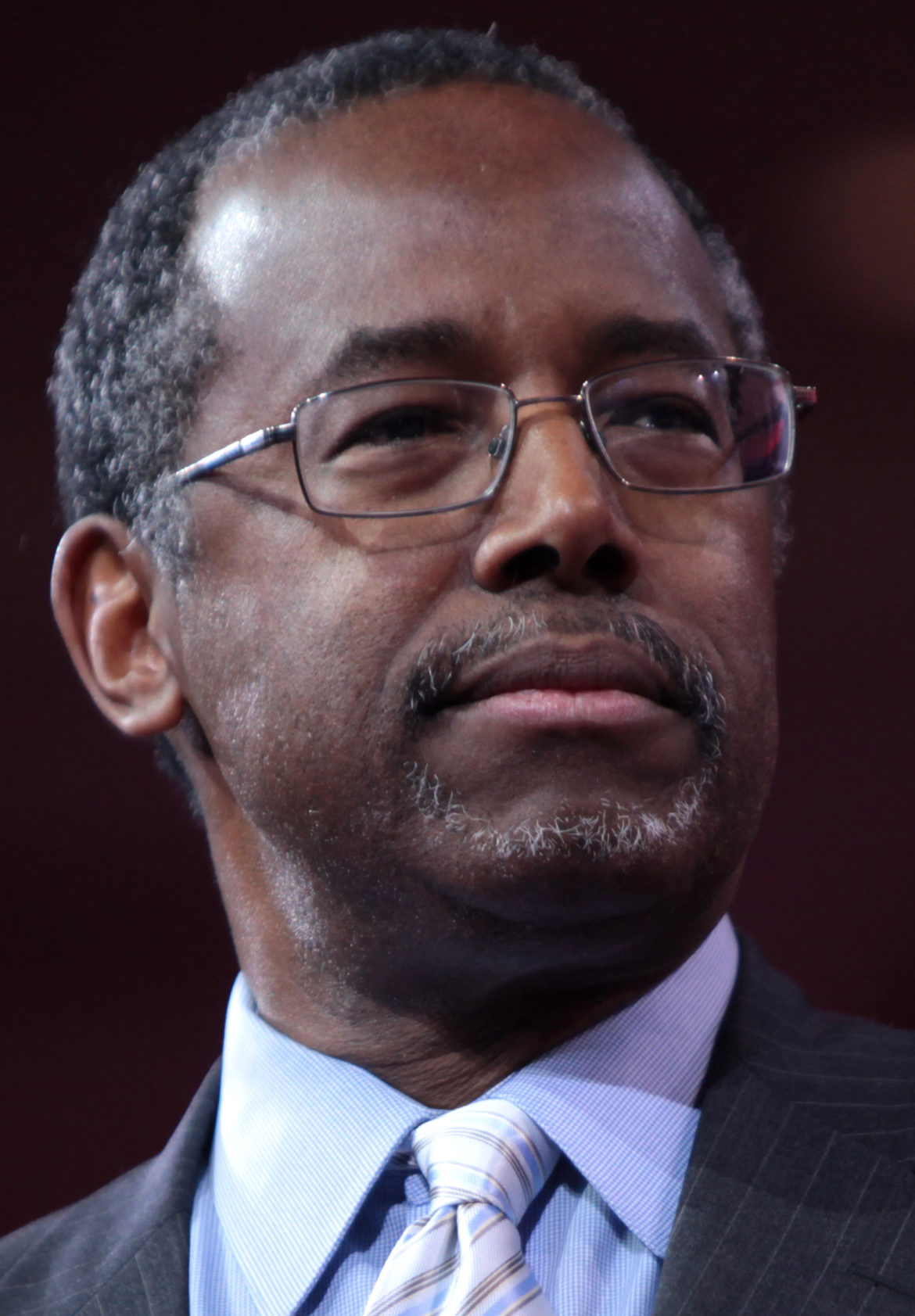No (public) experience required. Neurosurgeon Ben Carson has been tapped to be Secretary of Housing and Urban Development, despite never holding public office in his career. (Even Carson admitted he would be a “fish out of water” as a federal bureaucrat a few weeks back.)
However, since the former director of pediatric neurosurgery at Johns Hopkins did run for president, we have some data on his personal finances and the people who most wanted him in office. Here’s what we know until Carson files a more up-to-date financial statement before his confirmation hearings:
Carson and his wife, Candy, brought in anywhere from $9 million to $27 million from the start of 2014 to mid-2015, mostly from speaking gigs, book royalties, stock dividends and board of directors compensation. (The candidates are required to report the values of their assets and debts only in very wide ranges.)
In less than a year-and-a-half, Carson brought in almost $4.2 million from 141 speaking engagements, giving presentations to large lobbying powerhouses like the National Association of Realtors (a group that might be glad to have an in with the HUD secretary), dozens of universities (most with a religious affiliation), and even the congressional campaign of Rep. Mike Coffman (R-Colo.). Politically active nonprofits that hired Carson to speak included groups like Wisconsin Right to Life; the Civitas Institute, a conservative think tank funded mainly by a foundation linked to Art Pope, a major donor to Republican causes; and the Alliance Defending Freedom, a conservative Christian group. As a Fox News Network contributor, he reported earning almost $500,000, and he brought in $137,000 from The Washington Times.
Carson held an estimated average $9.1 million in assets in his stock portfolio, spinning off dividends ranging anywhere from $94,000 to $234,000. Almost all of his holdings were in mutual funds and similar investment vehicles that buy and sell a variety of stocks and bonds.
All except two, that is. Carson served on the board of directors for Kellogg Company, where he earned $125,000 as a board member — and almost $1 million to $5 million worth of stock, which brought him between $5,000 and $15,000 in stock dividends during this period. On top of that, he sold almost $3 million worth of employee stock options. He also was on the board of Costco Wholesale Corporation, which paid him $45,000 for his trouble, $50,000 to $100,000 in dividends from his $1 million to $5 million worth of stock, and $1.3 million from employee stock options he cashed in.
Beyond that, he and his wife founded the charity Carson Scholars Fund, Inc., which awards college scholarships and builds reading rooms. Carson is also currently honorary national chairman of My Faith Votes, a nonprofit that urges Christians to go to the polls.
Carson also sat on the advisory boards of Massachusetts biotechnology company Berg, LLC and Maryland’s HomeCentris Healthcare, LLC, and the board of directors of the nonprofit Academy of Achievement, all without being paid. He served as chairman of the board at biotechnology company Vaccinogen, Inc. for around ten months until May 2015.
He and his wife own real estate in Pittsburgh, Penn. properties valued at more than $1 million, and received anywhere from $200,000 to $2 million in rent. Candy also earned an additional $100,000 to $1 million from America the Beautiful, a book she cowrote with her husband, and a couple of thousand dollars in stock dividends.
Carson the candidate was extremely popular with the senior set: Almost one sixth of the $63 million he raised for his campaign came from retired individuals. People and PACs associated with Republican/conservative ideological groups and his fellow health professionals came in second and third at $1.3 million each. Well over half, or 58 percent, of his cash came from small donations of $200 or less.
Having no prior donor base to pull from, Carson assembled a massive list of first-time political supporters. Up until December, a few months before Carson dropped out, almost 75 percent of his donations came from people who hadn’t donated to other federal candidates since at least 2007, according to our data analyzed by the Center for Public Integrity. (Though he didn’t build this infrastructure all on his own; Carson met with GOP strategist Karl Rove to share contacts during the primary.)
With the names of more than 700,000 backers, Carson’s mailing list could be worth millions, CPI estimated, if he rented out the database to other candidates and committees. In the months of September and October, Carson reported earning at least $670,000 from what he labeled as “list rental income.”
The outside groups that backed him also cashed in. Carson’s largest super PAC, 2016 Committee, which spent $6 million on his behalf, earned at least $158,000 from renting names, according to its latest quarterly report.
Of those that funded pro-Carson outside groups, retired folk led the way again with $4.3 million, with those in the livestock ($433,000) and real estate ($342,000) industries at Nos. two and three, respectively. Livestock, you wonder? That’s because a few magadonors stood out in their support of Carson: Idaho rancher and philanthropist Harry Bettis spent $256,000 on two super PACs backing him, the 2016 Committee and National Draft Ben Carson for President Committee. Rancher and San Antonio Spurs Chairman Julianna Holt pitched in almost $145,000 to supporting groups and Ronald Henriksen, chair of Logix Communications, gave more than $161,000 to efforts backing the neurosurgeon.





